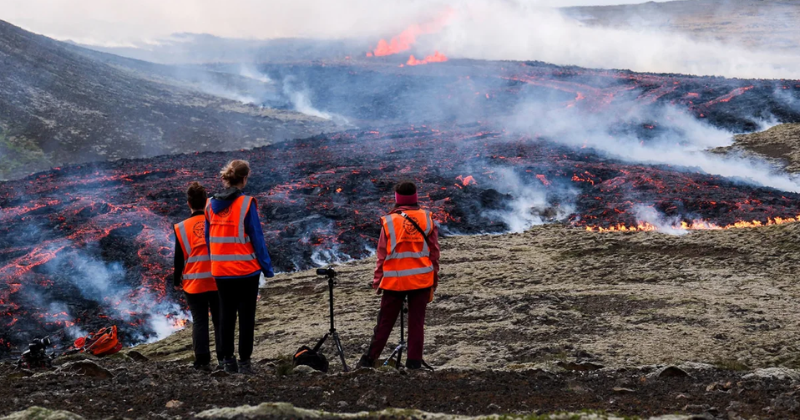Reykjavik, Iceland - A volcanic eruption has occurred south of Iceland's capital, Reykjavik, releasing plumes of smoke across the region known for its lava fields, volcanoes, and geothermal activity. The Icelandic Meteorological Office (IMO) stated that the eruption began on Monday in the Reykjanes Peninsula, classifying it as "minor" with no ash emissions and no reported disruptions at Keflavik Airport.
According to the IMO, the eruption originated from a 200-meter-long (656 feet) fissure on the slopes of the Litli Hrútur mountain, resulting in the emergence of lava through a series of fountains. Prior to the eruption, scientists had cautioned about the possibility of volcanic activity after detecting numerous minor earthquakes in the area.

Photos depict streams of lava flowing across the dark fields, accompanied by small fires in the distance and thick smoke billowing into the air. Fortunately, since the eruption occurred in an uninhabited area, there are no immediate risks to communities or infrastructure. However, the IMO has advised people to avoid the vicinity due to the accumulation of dangerously high levels of volcanic gases. The wind may carry these gases northward, potentially affecting various areas, including Reykjavik, the capital city.
In response to the gas levels, the Reykjanes Peninsula regional destination management office has closed all trails to the volcano for the time being, citing massive gas pollution that poses a life-threatening risk. Authorities are actively working to restore access to the volcano once the pollution subsides.
Several days ago, the management office had cautioned hikers in the region to exercise caution, noting similarities between the recent seismic activity and the events preceding a volcanic eruption last year.